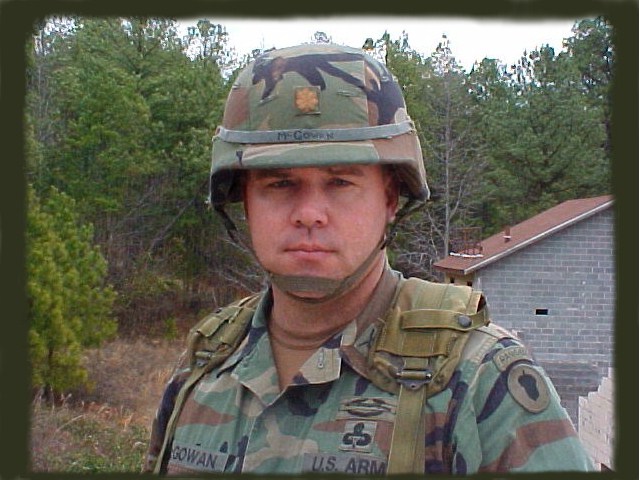 |
|
Confessions
of an Infantry Officer
Author: Pat
McGowan
The Book Titled: Outside
The Wire
is the tale of a former Ranger platoon leader,
Light Infantry in Somalia, and the struggles of
living a life burdened with guilt from combat. It
includes the story of 1-22 Infantry in Somalia
and the events that led to Battle of Mogadishu.
The story provides reasons for Somali hostility
against UN forces, the failed attempts to capture
Aidid, and the background to the Rangers
involvement in Somalia; told from the ground
perspective of a soldier who was there.
|
| |
 |
| |
In
the Horn of Africa millions of people
suffer from chronic food insecurity and
are often menaced by famine. A strategy
for breaking out of the region's cycles
of hunger was unveiled in a report
presented by Jacques Diouf,
Director-General of FAO.
He is the head of a United Nations
inter-agency task force established by UN
Secretary-General Kofi Annan to develop a
strategy for long-term food security in
the Horn of Africa's seven countries:
Djibouti, Eritrea, Ethiopia, Kenya,
Somalia, Sudan and Uganda.

|
| |
| |
| |
| |
| |
| |
| |
| |
| |
| |
| |
|
|
|
|
"... Seit dem Sturz der Regierung Mengistu
durch die vereinigten Kräfte von EPRDF (TPLF),
die die derzeitige Regierung Äthiopiens bildet
und EPLF, die die derzeitige Regierung in Eritrea
bildet, haben die USA eine Menge Geld in den
Aufbau von Sicherheitssystemen entlang der Häfen
des Roten Meeres gesteckt, die seit 1993 zu
Eritrea gehören. Washington bemüht sich nach
Kräften, mögliche oder wirkliche antiwestliche
Bewegungen und Regierungen am Horn von Afrika zu
verhindern.Amerikanische
Multis sind auch hinter den reichen Schätzen
– Erdöl, Gold und Erdgas - der eritreischen
Küste des Roten Meeres her und haben dabei
lieber mit einem Land mit 3,5 Millionen
Einwohnern zu tun als mit einem Land mit 65
Millionen Einwohnern mit einer
antiimperialistischen Tradition. In den 90er
Jahren wurde Eritrea als Hinterland für die von
den USA betriebenen Überfälle gegen Yemen,
Somalia und Sudan benützt, durch die
antiamerikanische Bewegungen ausgelöscht und
widerspenstige Staaten gezähmt werden sollten.
Man könnte sogar behaupten, dass Eritrea durch
seine Unterstützung der Operation der USA in
Somalia eine entscheidende Rolle bei der
Entwicklung des Begriffes 'humanitäre
Intervention' gespielt hat..."
Der Autor Kole Kilibarda
ist Antikriegsaktivist und Organisator einer
Studentenbewegung.
Derzeit lebt er in Washington D.C.
|